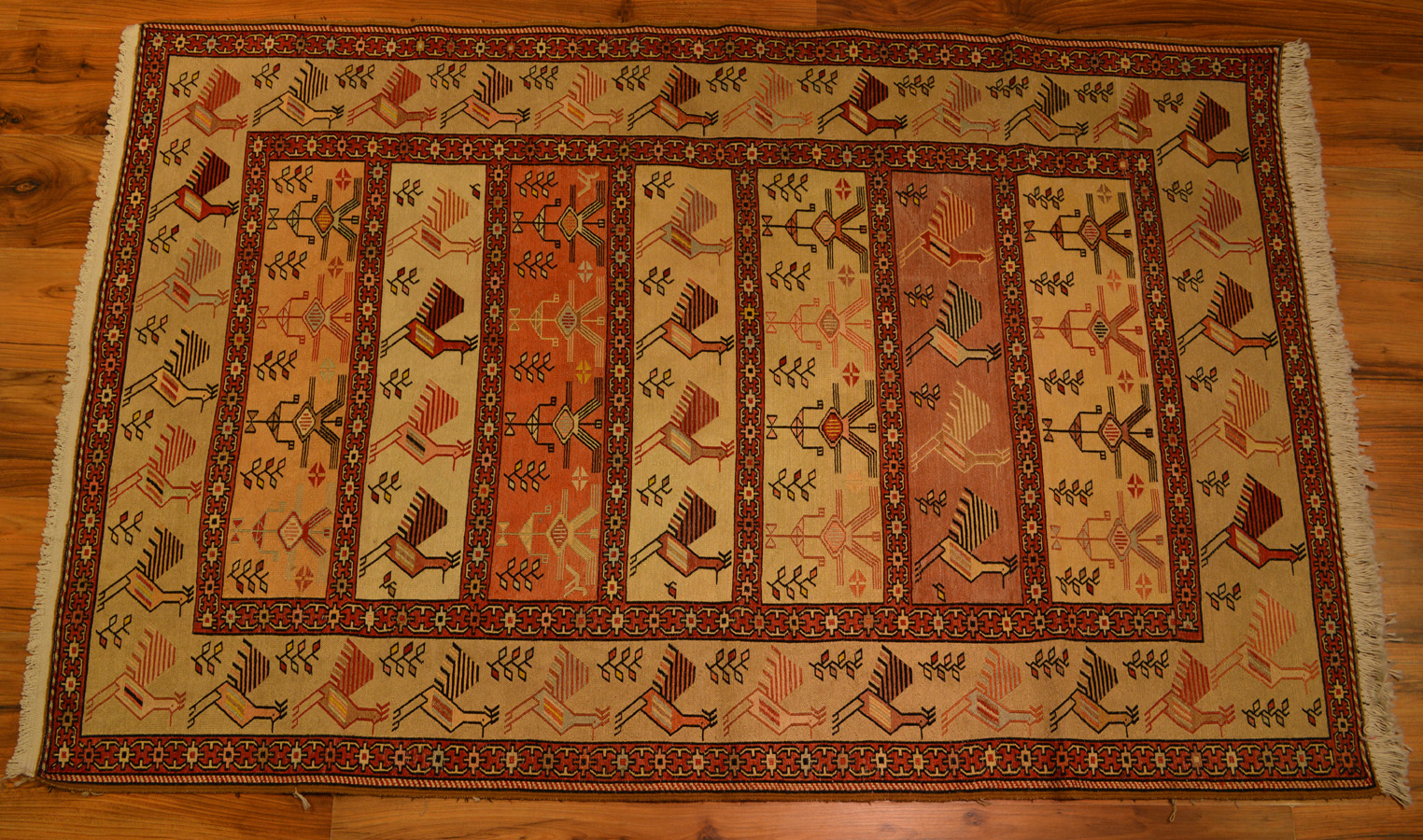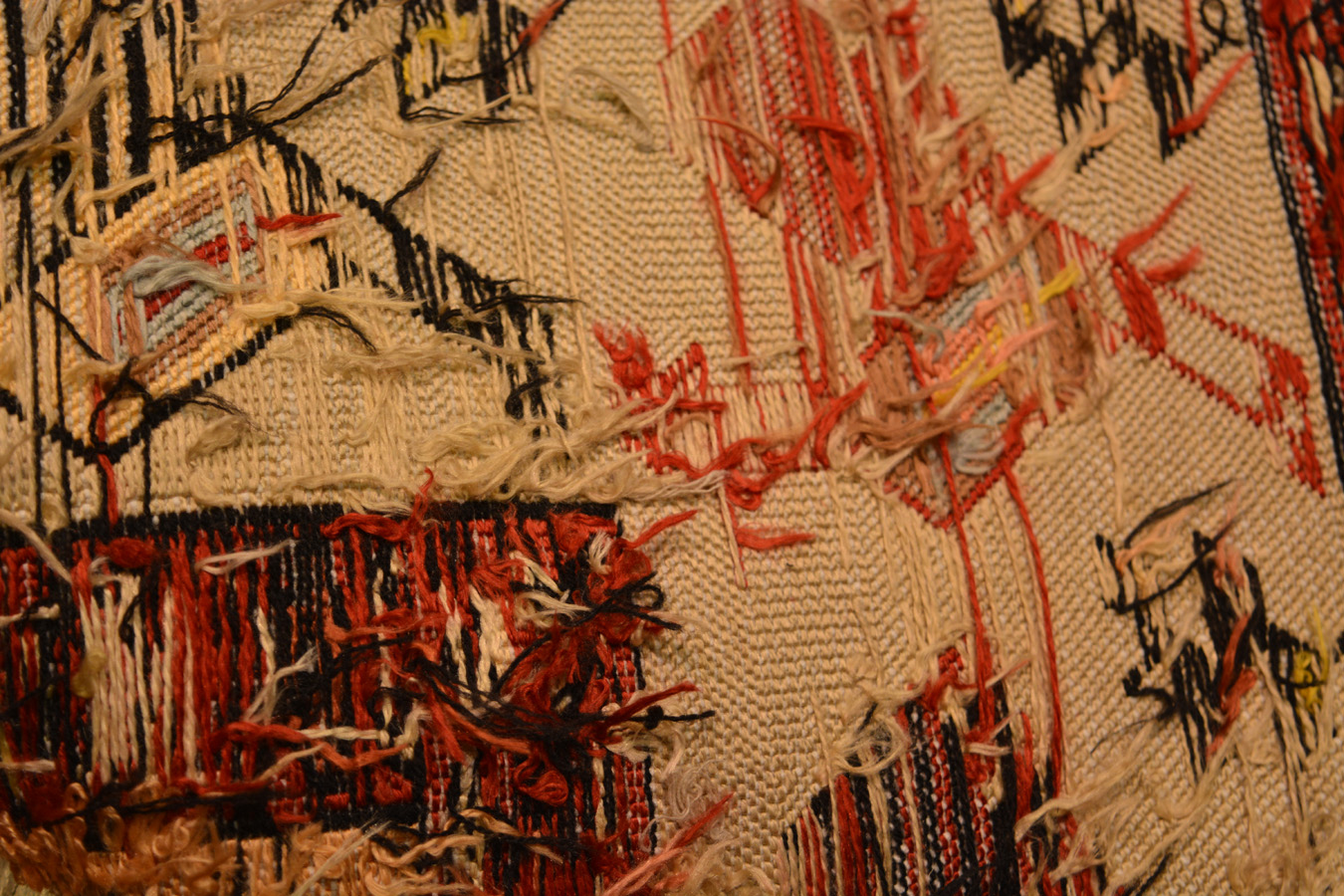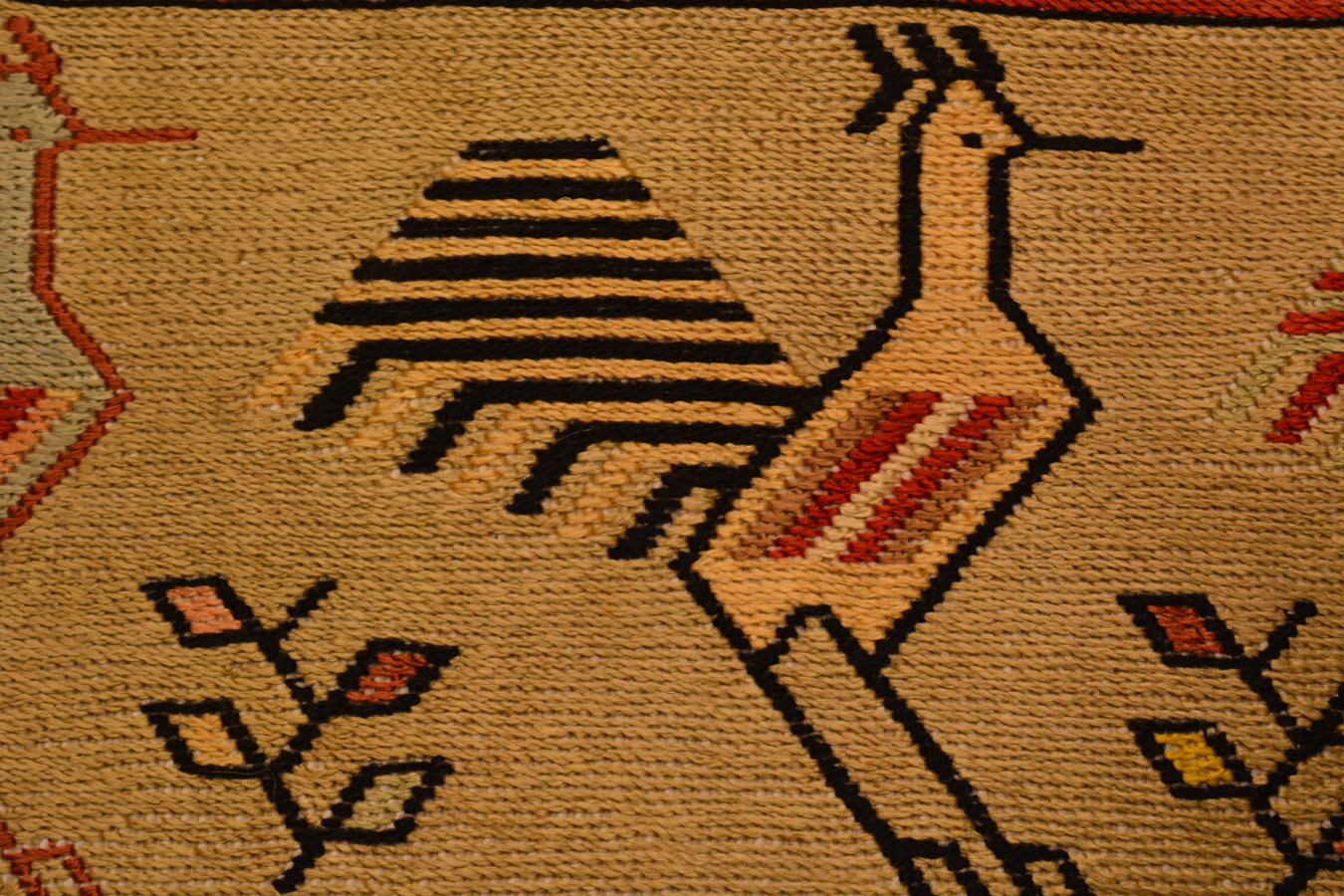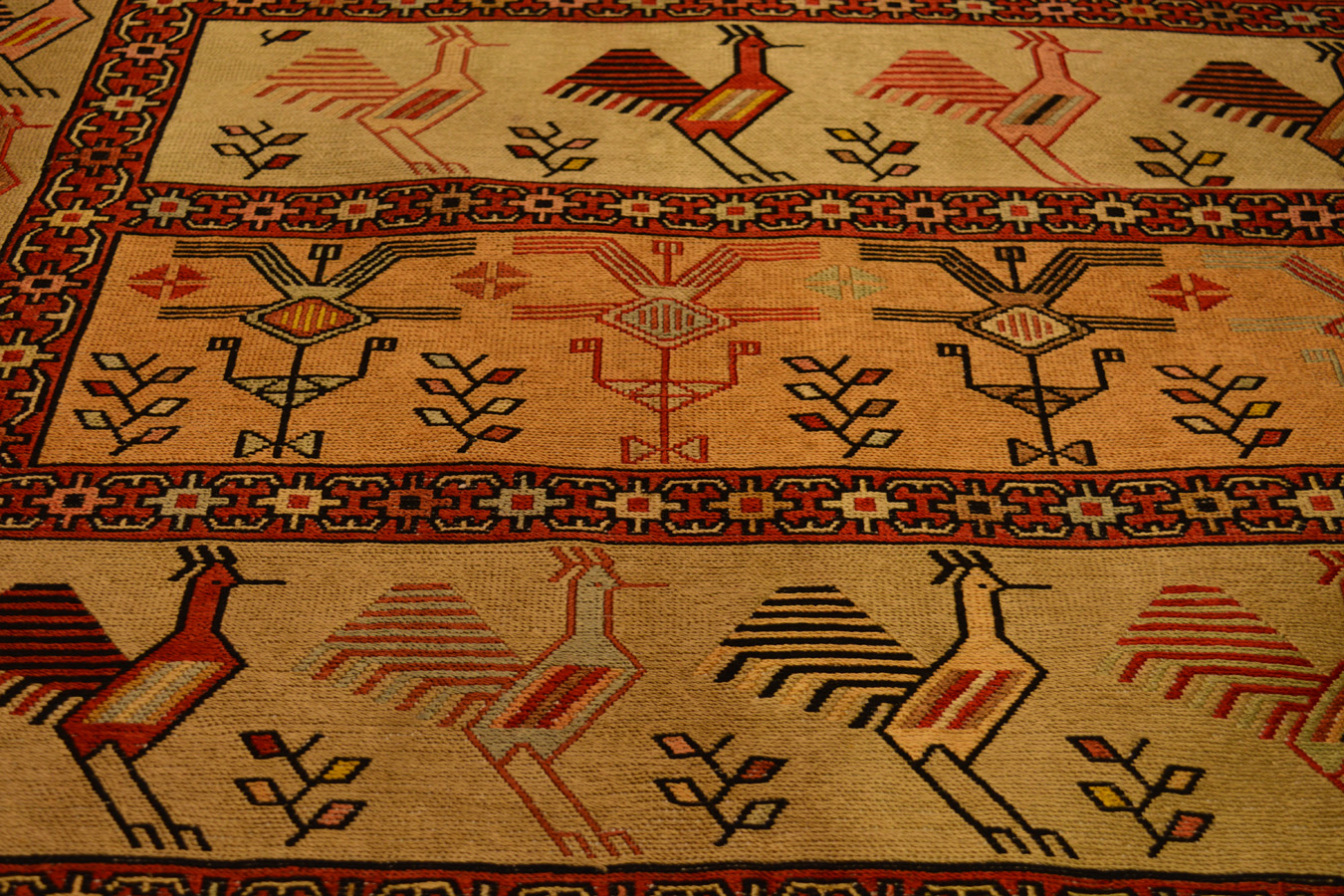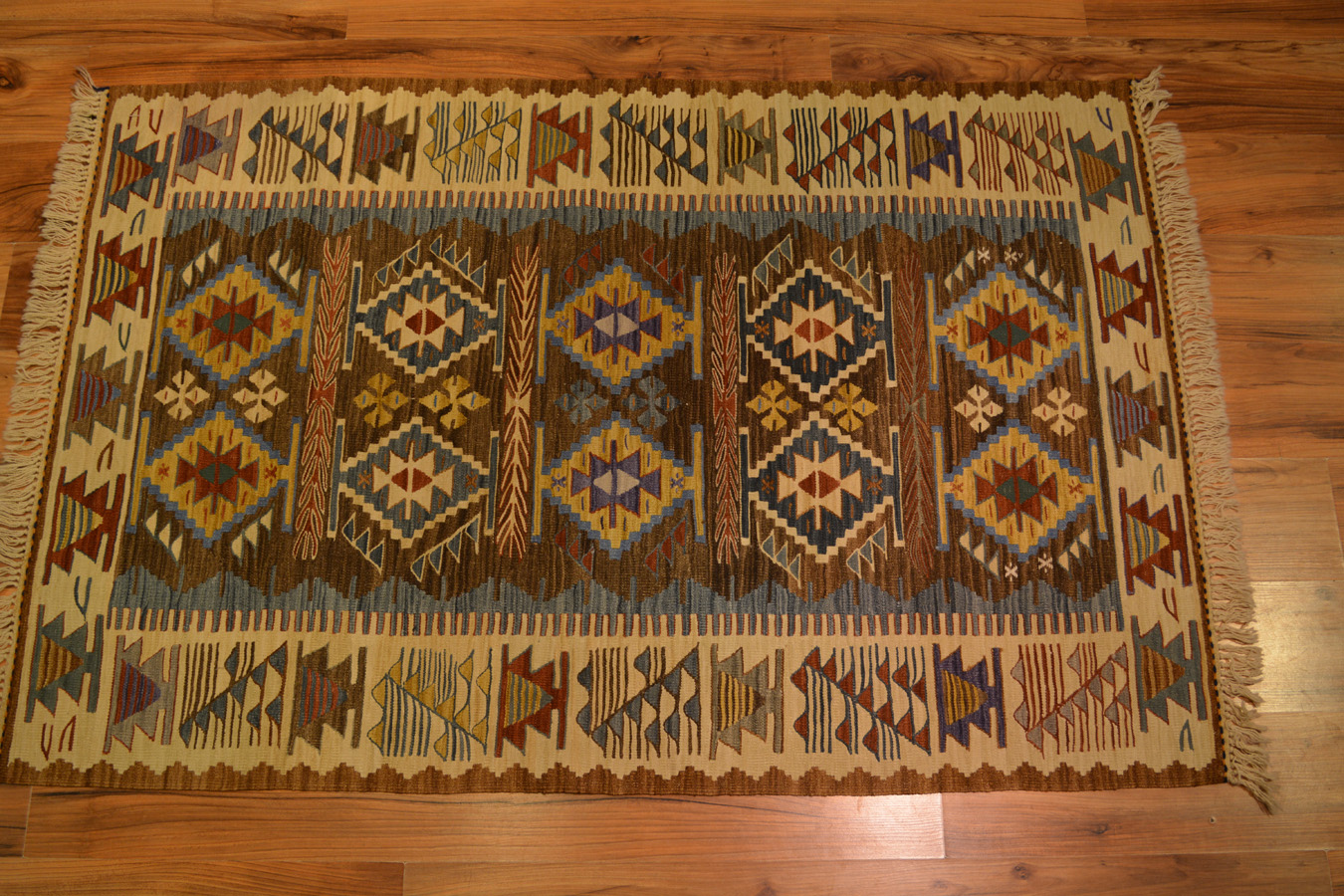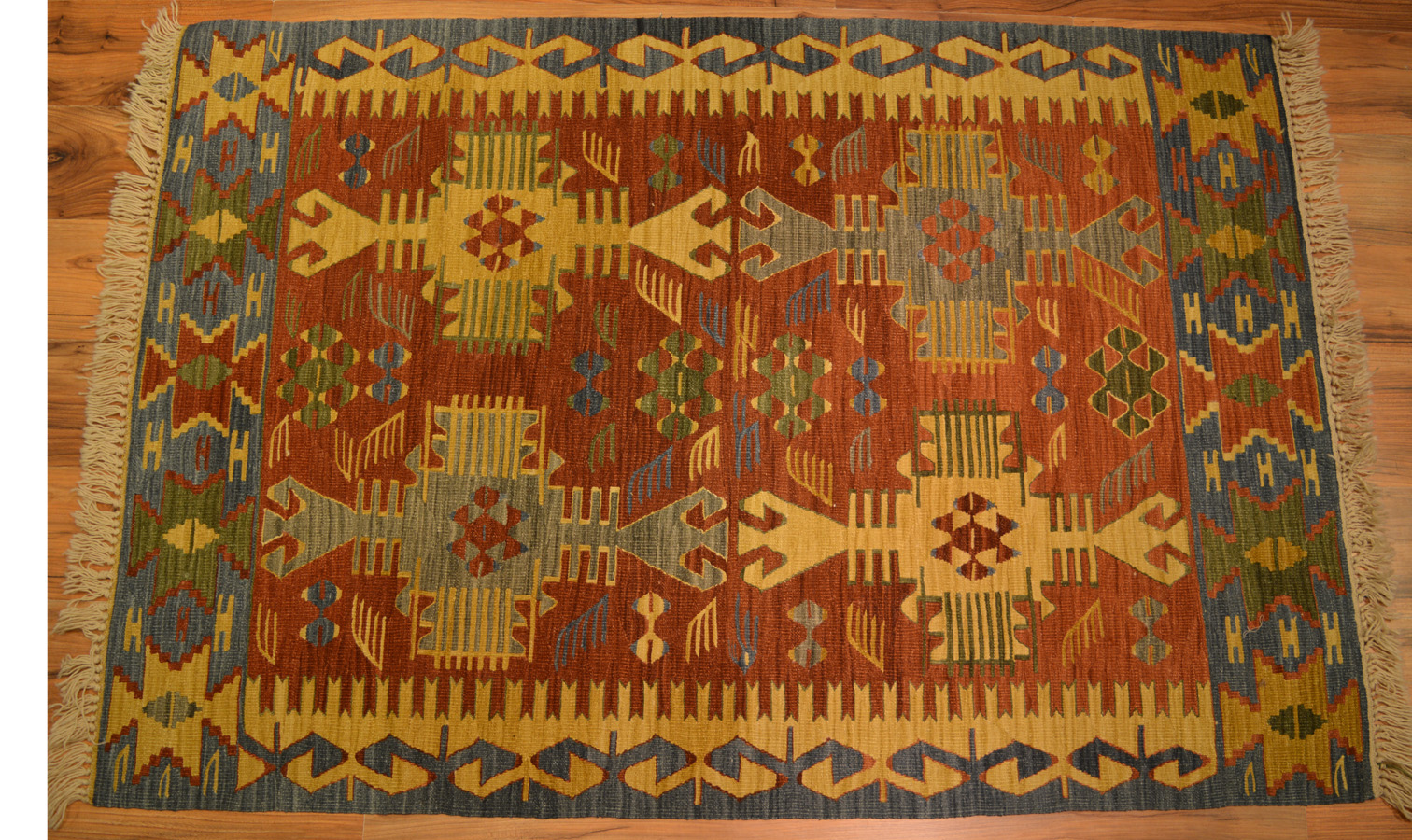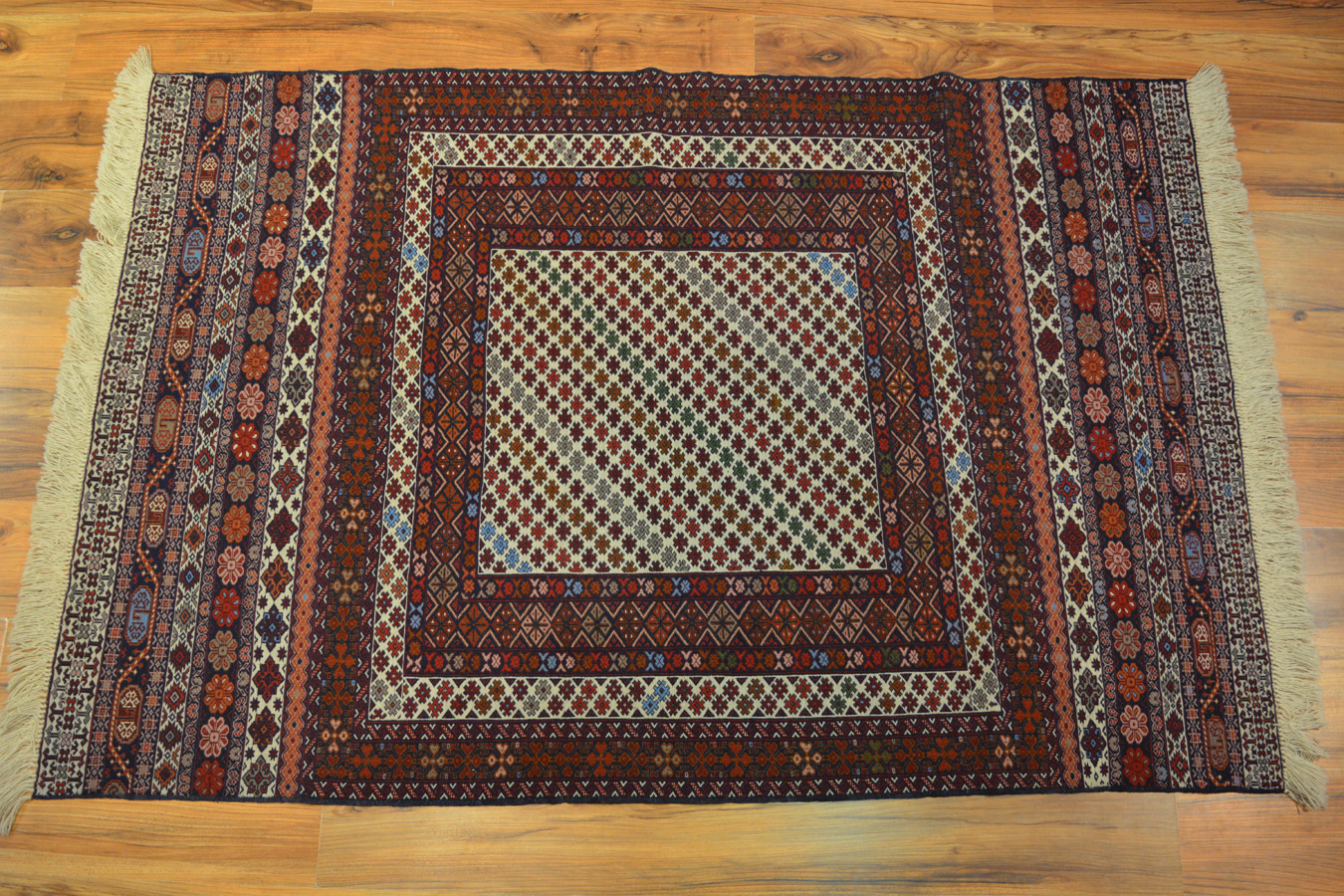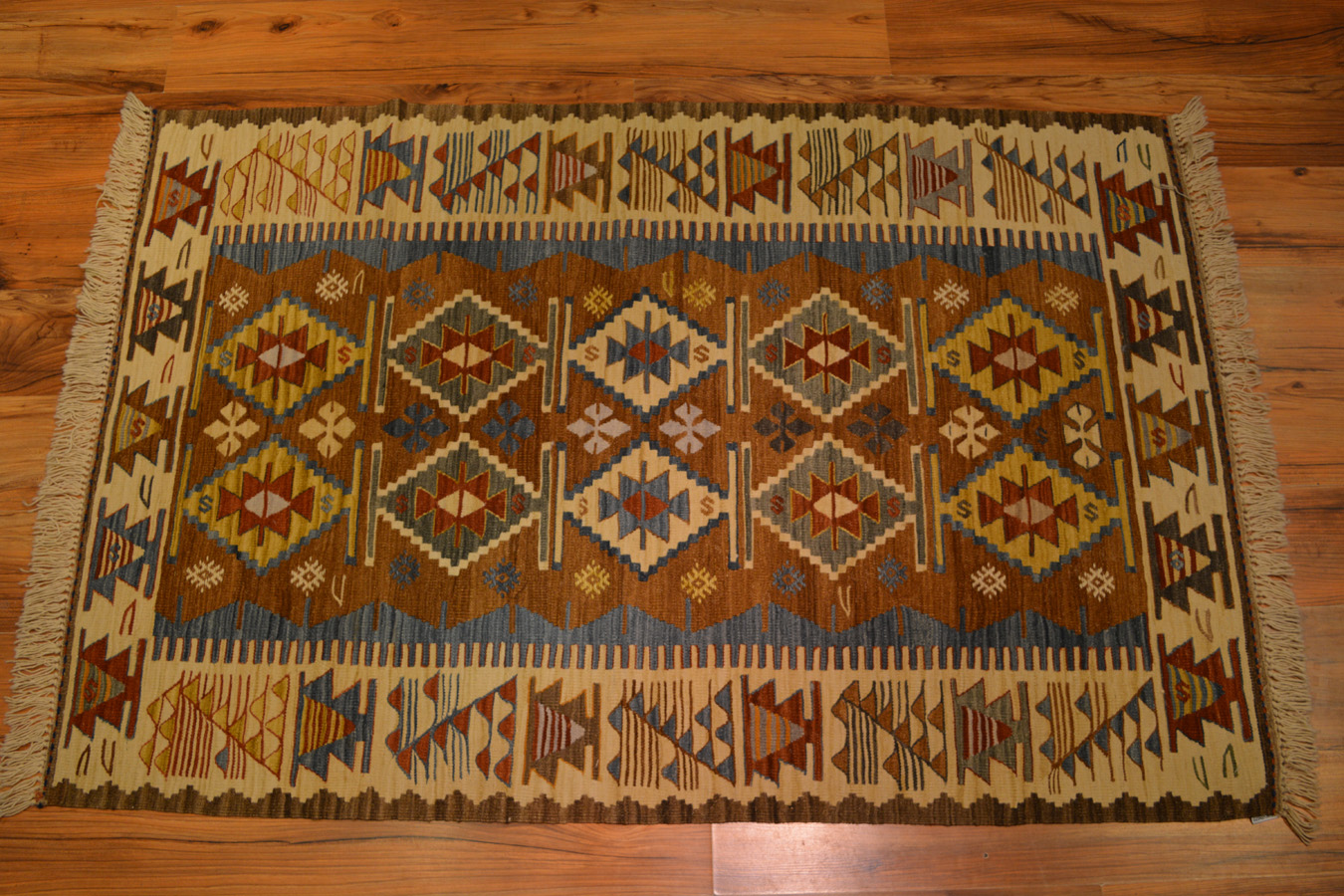ShahSeven ‘Animal Motif ‘ Sumak Kilim
Size: 1,16 x 1,79 cm ( 3.1 ft x 5,11ft )
Product code:1622
Age: New
100%handmade
Pure wool with cotton warps
The Shahsavan are the most famous confederation of tribal groups in north-west Iran .The majority are of Turkic origin, the rest being Kurdish, Tadjics or Georgians. The Shahsavan are some of the most expert weavers of Soumak technique (weft wrapped brocaded kilims ),producıng a fasanating range of fine decorative soumaks and long runners as well as textiles needed in their daily nomadic life. These include storage sacks, kilims (both decorative and functional ), bedding bags, babies cradles, and most famously their ceremonial horse blankets.
Persian, Caucasian and Shaman influences are evident in the design of Shahsavan weavings with random scrollings, stylized birds, flowers, animal and human figures. The animal motifs are some of their most famous and represent the animals that they would have seen around them when they were nomadic Colours vary from old weavings where rich reds and orange prodominate, to more modern weaving which use a softer more pastel palette.
Description
ShahSeven ‘Animal Motif ‘ Sumak Kilim
Size: 1,16 x 1,79 cm ( 3.1 ft x 5,11ft )
Product code:1622
Age: New
100%handmade
Pure wool with cotton warps
The Shahsavan are the most famous confederation of tribal groups in north-west Iran .The majority are of Turkic origin, the rest being Kurdish, Tadjics or Georgians. The Shahsavan are some of the most expert weavers of Soumak technique (weft wrapped brocaded kilims ),producıng a fasanating range of fine decorative soumaks and long runners as well as textiles needed in their daily nomadic life. These include storage sacks, kilims (both decorative and functional ), bedding bags, babies cradles, and most famously their ceremonial horse blankets.
Persian, Caucasian and Shaman influences are evident in the design of Shahsavan weavings with random scrollings, stylized birds, flowers, animal and human figures. The animal motifs are some of their most famous and represent the animals that they would have seen around them when they were nomadic Colours vary from old weavings where rich reds and orange prodominate, to more modern weaving which use a softer more pastel palette.
